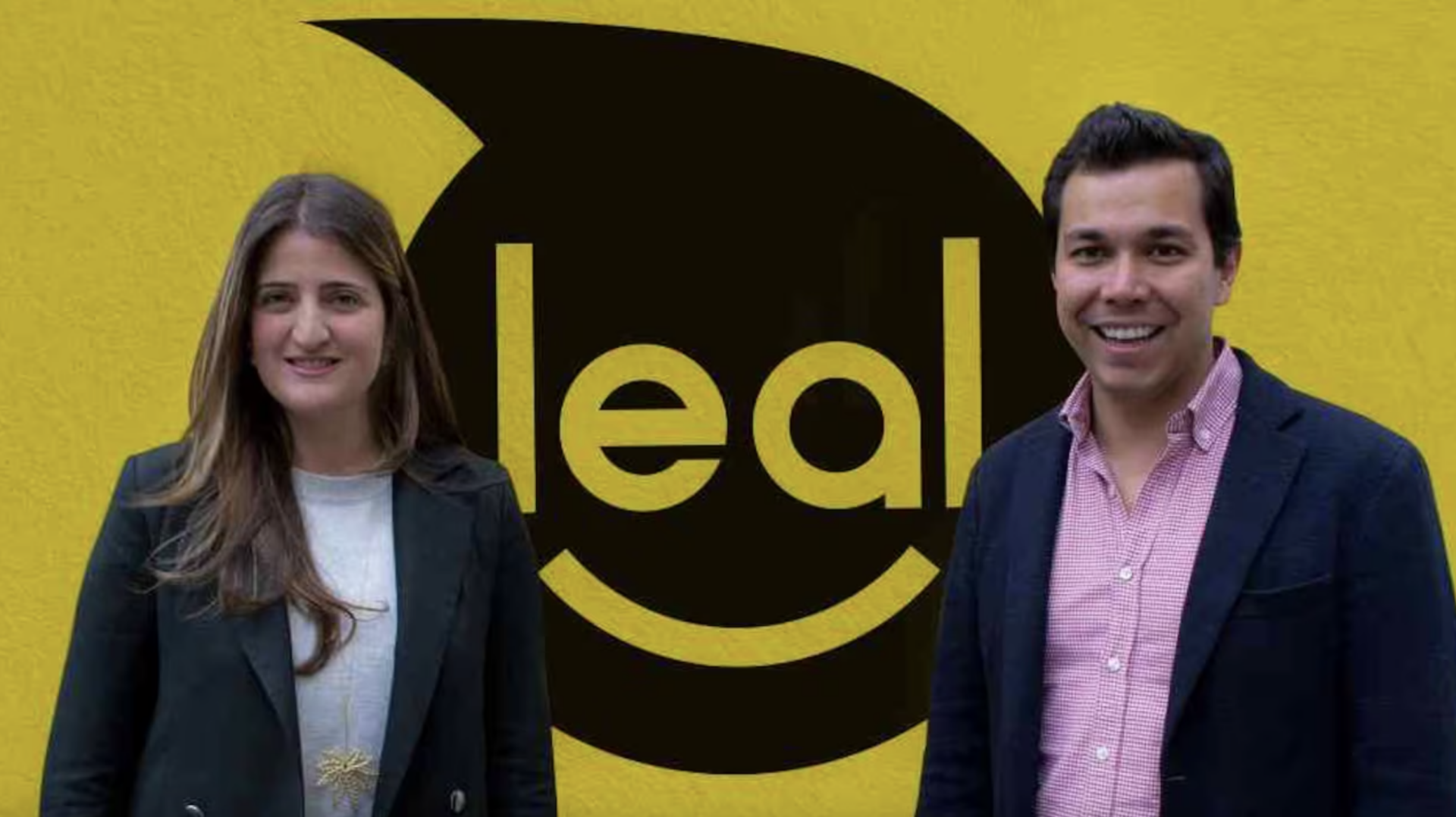Latin America’s technological and entrepreneurial prowess is only growing, as showcased by heightened investor interest in promising startups — capital raised jumped from $6.7 billion in 2021 to $10.1 billion in 2023. The continent’s booming tech hubs, from Buenos Aires to Mexico City and Bogotá, are filled with B2B and B2C businesses delivering unmatched value to clients on a regional and global scale.
A company servicing both end-consumers and companies is Leal, a Colombian Customer Management company making waves for its partnerships with popular brands to deliver loyalty programs and targeted marketing campaigns. Leal competes in a global market valued at $82.7 billion and set to grow 11.9% annually until 2030.
Technological approaches are always rapidly evolving, and companies have to keep pace with these momentous shifts to engage with their customers. For tech providers helping companies achieve that, this means constantly pushing the frontiers of emerging solutions — whether it’s leveraging the latest breakthrough in AI or ML.
We sat down with Leal‘s Founder, Camilo Martinez, to dive into his journey in achieving just that, his vision for the future, and what he wishes to offer his clients with these emerging and powerful technologies.
What are some of the key takeaways from your founding journey at Leal that other aspiring founders can learn from?
From the very beginning, my vision for Leal involved delivering data solutions for the retail sector to better engage with their customers — a SaaS tool felt like the most intuitive way to go. That’s because this business model offers scalability to clients and, oftentimes, 24/7 support from their service provider.
In this regard, starting with a loyalty program really helped us build a robust B2B and B2C client base. Its success laid the foundation for our expansion and helped us secure crucial seed funding, which enabled us to continue innovating in the industry.
When you have the opportunity to grow from your initial MVP, you must truly listen to what your clients are after and decide which demands you want to service next. We went for an integrated approach, leading to the development of a comprehensive platform that unified marketing, sales, and customer service.
Then, when AI and ML came into the picture, everything changed — it felt mandatory to include them in our services for the value they provided (they’re fast, precise, increasingly affordable, and capable enough to take over repetitive tasks for us). In my opinion, whoever isn’t using them in their tech solutions today is already behind.

How has your vision for Leal changed over the years, especially as technology evolves and the region’s adoption of it has recently skyrocketed?
I believe that technology is an essential catalyst for growth and innovation.
Over the years, as the Latin American retail industry has evolved, so too has our vision. Prospective and existing founders really need to tune into this — their vision shouldn’t be stagnant; it should adapt to industry shifts. Taking the pulse of these tech trends helped us recognize the growing importance of data-driven decision-making and the need for seamless, omnichannel customer experiences.
That has all come from doing our best to take the pulse of the industry and our clients’ needs to continue innovating. That’s why a SaaS model made all the sense for us to adopt, plus investing in AI when it became evident that the technology was a necessity to bring value rather than a luxury.
We’ve made sure that our current business model provides businesses with deeper insights, more personalized interactions, and greater operational efficiency. It’s these things that help set your company apart from the competition.
What made you decide to take the leap to integrate organizational areas such as marketing, sales, and customer service into one platform?
The development of our latest solution was motivated by understanding the challenges that modern businesses face. In today’s fast-paced, digital-first world, they need to be agile, data-driven, and customer-focused. Yet, many of them still struggle with fragmented systems and siloed data because the resources to improve this weren’t readily available. This is the infrastructure we wanted to provide business owners, from small family-owned shops to national and multinational companies.
After taking our first step with a model that worked (our loyalty program), it only made sense to keep meeting our clients’ needs by expanding the infrastructure we already had. This is where scalability played a huge role for us, and something founders should keep in mind when they first build their product. How high is its ceiling for expansion, does the technology allow for growth, and can upcoming fundraising rounds cover those costs?
In that sense, Leal’s next move felt very intuitive, and that’s why we were confident in launching this centralized platform.
How can injecting AI and ML transform a regular CRM platform into a more powerful tool for businesses to connect with their clients?
AI-driven marketing automation allows businesses to deliver the right message through the right channel at the right time — this is where most companies fail today. Generative AI capabilities create personalized content that resonates with customers, increasing their lifetime value (LTV) and retention rates. It also helps replace traditional A/B testing with sophisticated ML algorithms that optimize campaigns in real time, ensuring maximum effectiveness and efficiency.
Another way AI is giving businesses an extra edge is by offering agents that handle customer interactions, including responding to reviews, feedback, and questions in a human-like and immediate manner. This improves customer satisfaction and frees up valuable human resources. It also analyzes customer interactions to provide actionable insights to companies to help them better understand and meet their customers’ needs.
These technologies are also great at predicting outcomes we might not be able to do ourselves. For example, they can accurately predict customer churn and recommend products tailored to individual preferences, building proactive ways to address issues and seize opportunities to increase sales and retain customers.
So, AI and ML are allowing retailers to go the extra mile by retaining existing customers and keeping them hooked to their services and products with targeted campaigns, communications, and excellent customer service.
Considering technology is evolving by the minute and innovation is ripe for the taking, how can founders capitalize on these trends to grow their companies?
They should really focus on these three aspects: technological leadership, market expansion, and delivering unparalleled customer success.
Staying competitive means having an unwavering commitment to technological innovation. This can come in the form of investing more in AI and ML, which is currently helping us push the boundaries of what we can achieve in the retail sector. This includes advancing AI-driven marketing automation to deliver even more precise and effective customer interactions.
It’s also good to go the extra mile and explore the integration of emerging technologies such as natural language processing (NLP) and augmented reality (AR). These two technologies take clients a step further into the future, enhancing the customer experience with cutting-edge tools to engage audiences. This feels like the next frontier for retail and many other sectors.
And, when wanting to expand, I think the tricky but valuable part is focusing on localized solutions that respect regional nuances and meet the specific needs of diverse markets.
Lastly, you should place your customers’ success at the heart of everything you do. To maintain this, it’s essential to continue improving the customer support infrastructure using tech like AI to provide real-time, intelligent assistance so clients can maximize service benefits with minimal friction.

This article includes a client of an Espacio portfolio company












